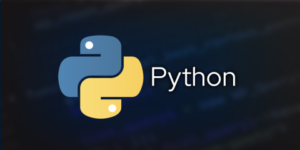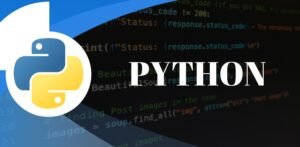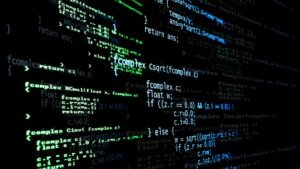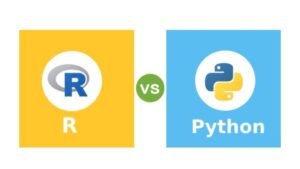A career in data science might be the best fit for you if you’re searching for an exciting path in a rapidly expanding field. Many people are motivated to seek careers in data science for a variety of good reasons, including the abundance of job possibilities and the opportunity to have a significant influence on corporate strategy.
But because the field is so large and is said to need a lot of education and dedication to the work, some people are afraid to try their hand at breaking into it. Stated differently, their question is: Is data science difficult, or too difficult for me to pursue? Don’t undervalue yourself if you fall into this group: the education and experience gained from a good online Data Science program will give you a great depth of knowledge into what looks like the unapproachable world of big data.
By the way, data science is one of the greatest career choices to pursue if you have an aptitude for maths and science. It provides rigorously engaging work and high baseline income across industries.
Data scientists are, in fact, in great demand in today’s business world, and this trend doesn’t seem to be slowing down (in fact, there are even signals of a future boom; more on that later). This is because firms need the assistance of data scientists, who work alongside data analysts and statistical engineers, to uncover extremely important insights that have the potential to improve and possibly completely transform the way they do business.
To be clear, not everyone is suited for data science. A career dealing with data might not be for you if your skills aren’t in numerical fields like computer science, statistics, or maths. (That being said, if you are in this position, there are certain occupations outside of data science that depend more on strategy and business skills than on crunching numbers.)
Is data science a hard field? The answer to that question depends on the individual; for individuals whose skills match those required for a data analysis position, challenges are probably in store, but they should also be intriguing and captivating. Put differently, if you possess the necessary skills to secure a job in data science, whatever might be difficult about data science will also be rewarding.
To learn more about data science, including its subdisciplines, technical prerequisites, and transferable skills that could facilitate your entry into the field, check out the online Data Science course.
Data Science Subcategories and the “Data Life Cycle”
Many unique jobs fall under the broad category of data science, each needing a distinct set of expertise. Almost every industry under the sun can benefit from data science, including higher education, healthcare, and commercial businesses. If you are currently employed in a field that uses data analysis, this may be the ideal opportunity for you to apply your understanding of an operating company to develop specialised data science abilities, which will support the development of a fulfilling and targeted long-term career.
Data science encompasses a wide range of subfields that cater to various business demands. Among them are the following:
- Data mining and statistical analysis
- Database architecture
- Machine learning (ML)
- Marketing Analytics
- Operations Analytics
These many positions actually correspond with the “data science life cycle,” which is the set of procedures used to handle data and communicate it to business executives. While jobs at larger businesses are broken down step-by-step, with each data scientist completing just one of them or even one smaller, more focused element of the job, at smaller organisations data scientists are involved in various sections of this process. The cycle’s steps are as follows:
- Capture: gathering, removing, and inputting information
- Maintain: Uphold database architecture, processing, warehousing, and cleansing.
- Process: data modelling, data mining, and data analysis
- Analyse: Analyse using qualitative and predictive methods
- Communicate: Communicate via corporate intelligence, data reporting, and visualisation.
As you can see, data may capture a wide range of business elements, which means that data scientists can work in a great number of roles. The aforementioned list merely touches the tip of the enormous range of specialisations and possibilities that exist in the big data industry. The answer to the question “Is data science hard?” might be found in the speciality you end up choosing. Different skill sets are required for different roles, therefore it’s critical to identify the data science field that will be rewarding for you.
Technical Requirements and Skills
The majority of people who seek high-level positions in data science have master’s degrees in the field. Indeed, the high level of experience needed to even be considered for a data science post contributes to the high salary of these positions. Apart from formal education, there are a few competencies that you must develop before landing your first data science job. Among them are the following:
- This contains, among other things, Java, C/C++, Perl, SQL, and Python—the most widely used programming language.
- Probability and Statistics: The majority of those who study these areas do so while pursuing a bachelor’s degree.
- Processing unstructured information from multiple sources: Data scientists must be at least somewhat conversant with the main information sources that businesses use, audience engagement strategies, main sales channels, and other related topics.
- Familiarity with SAS and further analytics: The most widely used analytics tools include Spark, Hadoop, R, Hive, and Pig, in addition to SAS.
Transferable Skills You May Already Have
As you begin your data science education, you may be able to contribute some more broad talents or areas of expertise in addition to the highly skilled technical occupations mentioned above. For those who are pursuing a career in data science, you may use this as a form of checklist by asking yourself whether any of the following describes you. If the response is in the affirmative, you are an excellent candidate to begin a career in data science.
- Strategic logic and business acumen: A strong understanding of business procedures and a general understanding of company strategy and decision-making are prerequisites for many data science positions.
- Industry-specific knowledge: Because they are familiar with the particular requirements of their industry, professionals in specialised fields like healthcare can focus their study on a data science topic that complements their current areas of expertise.
- Strong communication skills are essential for data scientists because many data analysts act as liaisons between unprocessed data and corporate leadership.
These are only a handful of the most crucial non-scientific abilities that matter if you want to become a data scientist and are highly appreciated.
Is Learning Data Science Worth It?
You may be wondering if pursuing a career in data science will be worthwhile if you’ve decided you possess the necessary knowledge and abilities. If you meet the previously listed requirements, the answer is unquestionably yes. It is almost certain that a career in data science will be profitable, engaging, and significant, eventually leading to more responsibilities and specialisations. There’s a reason why these positions are currently among the most sought-after ones available.
How Can a Data Science Degree Program Help You?
Upon starting this article, you might have been asking, “Is data science hard?” However, if you’ve discovered that you possess the knowledge and abilities required of data scientists, you may be asking yourself, “How can I pursue a data science career next?”.
For the majority of people, pursuing a degree in data science is the solution. Because data analysis and engineering are highly skilled fields with high employer standards, these careers come with outstanding compensation. The most common method of developing the skills, knowledge, and experience necessary to become a top-performing data scientist is through degree programs. Most of the best data scientists have master’s degrees.
Conclusion
Students interested in data science have many options when it comes to online degree programs. While some students are keen to start their studies right away and finish their education full-time, others work part-time employment while pursuing their degrees. It’s critical to create a long-term sustainable plan for your degree pursuit, taking into account both your financial requirements and your general level of energy. You don’t want to experience burnout after making the admirable choice to pursue a career in data science, after all. Begin your journey here by checking out our Data science online training.






























